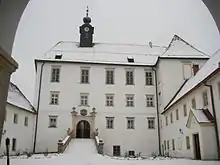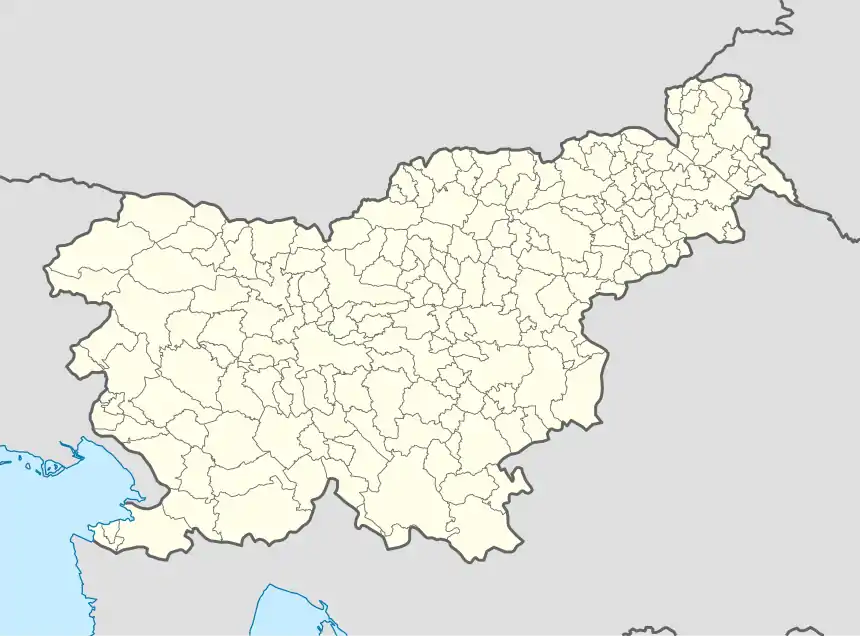Gornja Radgona Castle
Gornja Radgona Castle (Slovene: Grad Gornja Radgona, German: Schloss Oberradkersburg; sometimes also Ratigoj Castle) is a castle in Gornja Radgona, Slovenia.
| Gornja Radgona Castle | |
|---|---|
Grad Gornja Radgona | |
| Gornja Radgona, Slovenia | |
 Courtyard and entrance | |
 Gornja Radgona Castle | |
| Coordinates | 46.675°N 15.9925°E |
History
The castle was built sometime between 1147 and 1182, and served as an important fortress on the border of Styria with Hungary. The town of Gornja Radgona grew up at the base of the hill upon which the castle is built. The castle is mentioned in 1265 as having 40 subservient villages with 355 farms. In the late 15th century it was the property of one Hans von Stutenberg, who joined Andreas Baumkircher in a rebellion against Emperor Frederick III. When the rebellion failed, the emperor seized the castle. In 1479 it was occupied by troops loyal to Matthias Corvinus who kept control of the castle until Corvinus' death in 1490. Subsequently it was owned by the emperor but leased to different castellans for a long time. In the late 16th century, it underwent a thorough reconstruction. In 1623 Emperor Ferdinand II sold the castle to Hans Ulrich von Eggenberg. It remained within the Eggenberg family until 1717, when it befell Leopold, count of Herberstein through marriage. In 1789, he sold it to the count of Wurmbrand and it then stayed in the same family until 1914. In 1931, Slovenian authorities took over the castle itself; it has since served a number of purposes. It was damaged in 1945 during World War II but later repaired. It is today rented out and used as a private residence.[1][2]
References
- Žagar, Gorazd. "Gornja Radgona (castle)". Gradovi.net. Retrieved 23 July 2015.
- "CASTLE GORNJA RADGONA". Tourist Information Centre Gornja Radgona. Retrieved 23 July 2015.
External links
 Media related to Gornja Radgona Castle at Wikimedia Commons
Media related to Gornja Radgona Castle at Wikimedia Commons